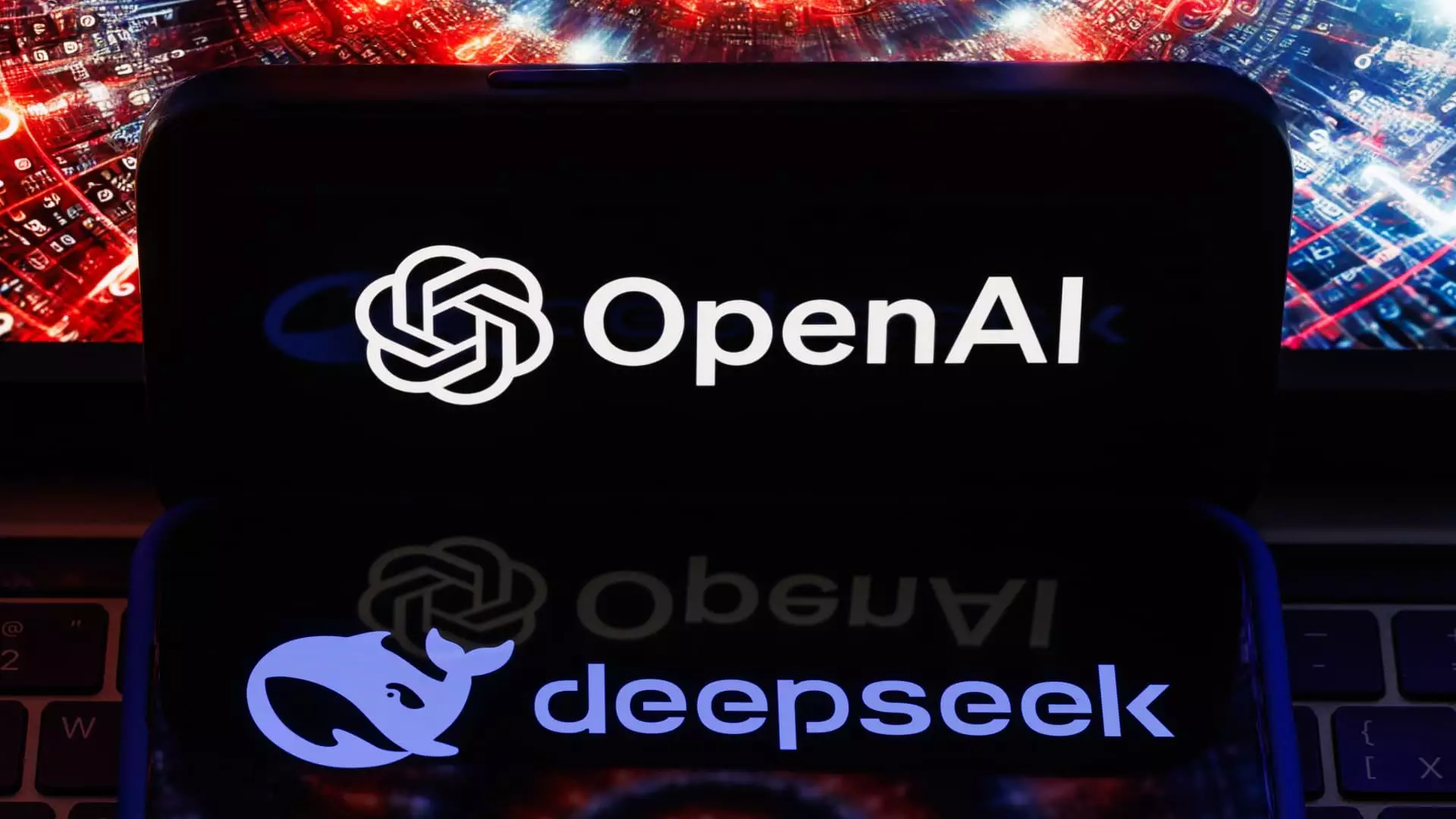The landscape of artificial intelligence (AI) is rapidly evolving, and recent developments from the Chinese lab DeepSeek have sparked critical conversations about the global competition in this domain. Prominent figures in the tech industry gathered at France’s Artificial Intelligence Action Summit to discuss the implications of DeepSeek’s advancements. Their insights highlight both the emerging challenges and the evolving narratives surrounding the competition between the United States and China in AI innovation.
DeepSeek has recently garnered attention for its breakthrough AI model, which is reported to have a training cost of less than $6 million. This figure stands in stark contrast to the exorbitant investments made by leading Western tech companies, which commonly allocate billions towards developing their own AI solutions. The revelation of DeepSeek’s cost-effective approach has caused industry leaders to reconsider their previously held assumptions about China’s position in the AI race. During interviews, tech executives emphasized that DeepSeek’s approach illustrates a significant shift, indicating that China is not to be underestimated in its technological prowess.
Chris Lehane, OpenAI’s Chief Global Affairs Officer, articulated that the emergence of DeepSeek introduces a legitimate competitive landscape: “There is a very real competition between U.S.-led democratic AI and CCP [Chinese Communist Party] China-led autocratic AI.” This statement underscores the ideological undercurrents that permeate the discussion, depicting a technological rivalry that is as much about values as it is about innovation.
Controversy Surrounding Censorship
However, amid the accolades, there are also concerns regarding potential censorship embedded in DeepSeek’s AI systems. When the AI assistant attempts to discuss sensitive topics, such as the Tiananmen Square massacre, it sidesteps the issue, responding with a message indicating that the topic is outside its capabilities. This raises pivotal questions about the ethical implications of AI development in environments governed by autocratic regimes. Critics argue that such limitations could lead to an AI landscape characterized by bias and censorship, which poses long-term risks not just for users in China but potentially for global interaction with AI technologies.
Reid Hoffman, co-founder of LinkedIn, reflects on the implications of DeepSeek’s entry into the AI arena, stating, “The competition is afoot with China.” Even with the achievements of DeepSeek, many executives remain skeptical about the immediate threats posed by the lab’s advancements. Despite being hailed as a major development, the majority of industry professionals agree that DeepSeek’s immediate competition to established entities like OpenAI or Anthropic is limited.
Assessment of Capability and Claims
While DeepSeek’s new R1 model reportedly demonstrates performance on par with OpenAI’s similar offerings, skepticism remains about the integrity of its claims. According to a report from SemiAnalysis, the reality of DeepSeek’s operational costs could be significantly higher when factoring in past expenditures. This raises crucial questions about the sustainability of the model’s cost-effectiveness and the realistic scalability of its technology.
Moreover, the concept of “distillation” has emerged, where DeepSeek may have leveraged larger, pre-existing AI models from Western technology firms to enhance its own outputs. OpenAI has already hinted at reviewing reports suggesting that DeepSeek might have inappropriately utilized its data, prompting deeper concerns about intellectual property and competitive ethics in the AI sector.
Abishur Prakash, a geopolitical strategist, noted that the West’s understanding of China’s technological capabilities may be limited. He spoke to the fading perception of America as the leading tech innovator, highlighting that the competitive space between the two nations has narrowed significantly over recent years. His insights prompt reflection on how the geopolitical landscape could shift in response to advancements from competitors like DeepSeek.
Meredith Whitaker, president of the Signal Foundation, offers a critical perspective by asserting that despite the hype, DeepSeek’s emergence is unlikely to disrupt the existing power dynamics in the industry. Currently, the momentum still favors larger AI models, signaling a preference within the tech community for established leaders rather than newer alternatives.
DeepSeek’s advancements signal a crucial moment in the AI landscape, prompting ongoing dialogues about competition, innovation, and the ethical implications of AI development amid contrasting geopolitical ideologies. While the firm’s achievements challenge previously held assumptions about China’s trajectory in AI, the skepticism surrounding its capabilities and potential censorship issues remind us that the road ahead is fraught with complexity. As this competition unfolds, it is clear that the stakes are high, and stakeholders across the globe must be acutely aware of the multilayered dynamics at play within the realm of AI technology.

